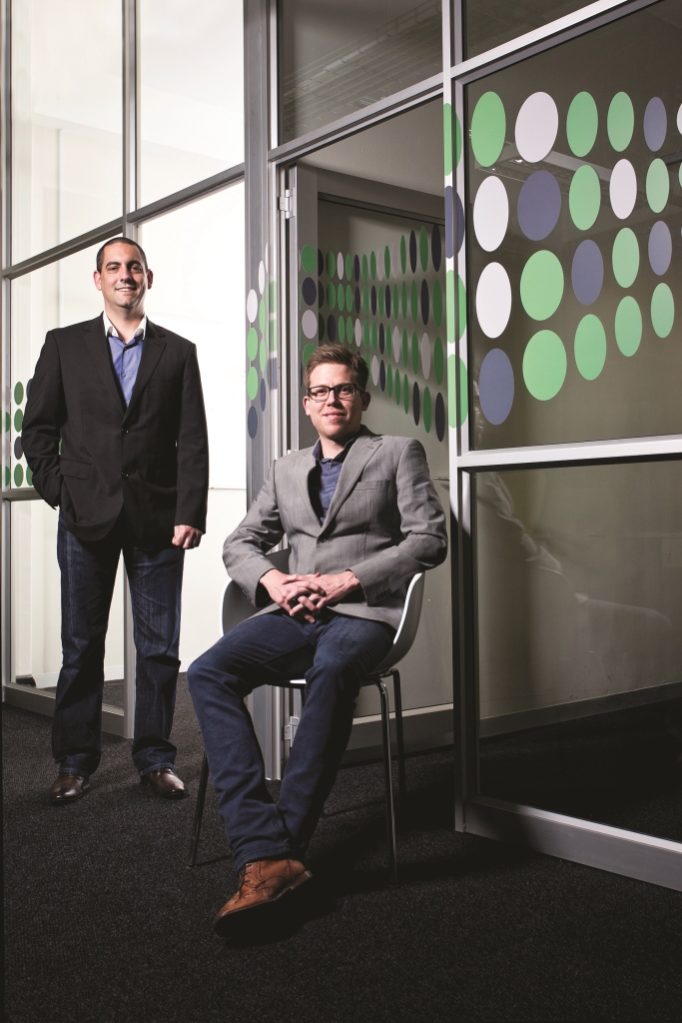Daniel Guasco and Wayne Gosling left South Africa for the United Kingdom, but only met when they both returned to South Africa to do an MBA at the University of Cape Town. These two entrepreneurs launched South African group buying website Twangoo, which was purchased 125 days after it opened, by the global leader in the industry, Groupon.
The name Twangoo comes from a Chinese term Tuangou, which means ‘team buying’. The story goes that for years in China, several people would approach a vendor as a group to get discounts. This strategy has been recreated online and is a booming business, according to tech website webgeekly.com: “Websites like Groupon are making a killing by taking small percentages off each offer purchased.” Groupon is a portmanteau derived from ‘group’ and ‘coupon’.
Guasco and Gosling first got the idea after attending a launch at the Silicon Cape Initiative, in Cape Town. The event is based on Silicon Valley in California, where many global IT companies were born.
“At the launch, I saw a number of very successful online tech entrepreneurs and a lot of talk about what’s happening online. And I couldn’t write a word of code [and was] not tech-oriented in any way. Both our backgrounds are entrepreneurial [… ] In 2009, Groupon was just starting to come onto the radar and really becoming big in the States. And then on January 3, the evaluation of Groupon came out with a billion US dollars […] We then went on to form an alliance with some other MBA guys and formed a partnership with them to start up what was then known as Twangoo here in SA,” says Gosling.
With R10,000 ($1,130) between them, they launched Twangoo in 2010 and within 125 days they were bought out by Groupon for an undisclosed amount.
Loading...
“The cool thing about Twangoo [and] Dan and I is that we’ve never met the guys that bought the website. We never met the guy that helped finance us. We only met afterwards, once we’d sold the business […] The developer is actually Russian. It shows it can be done if you put your mind to it,” says Gosling.
Groupon was launched in 2008 by Andrew Mason, a final-year university student, who had caught the eye of entrepreneur Eric Lefkofsky. He recognized Mason’s potential, after the student created a social initiatives platform, which evolved into Groupon.
“Ironically, when we started Groupon, we were thinking of it as this sort of discount site that will be the business model, the tail that wags the dog. But we hear from so many of our users how great it’s been for their lives, that it’s helping them get out of the house or the city and really enjoy their lives […],” Mason had said in an interview with ChicagoBusiness.com.
However, despite being CEO for four and a half years, Mason was fired in February, after the company had a number of disappointing quarterly earnings. The New York Times reported that Groupon was valued at $16.5 billion, when it went public in late 2011. By February, its value had dropped to $2.97 billion. Many shared the sentiment that Mason’s dismissal was long overdue.
On a global scale, however, Groupon is expanding—it has websites in 49 countries, but only one in Africa for the time being.
“It’s part of the bigger Groupon picture […] I think South Africa is still such a huge opportunity. I think the other challenge, as well, is mobile. We’ve launched quite a big initiative in South Africa around mobile,” says Guasco.
It hasn’t been a smooth ride starting an online-based business in a country such as South Africa, which, according to the World Bank, has 6.2 million internet users—12% of the population.
“Either the internet connection doesn’t work at home; it’s obviously very costly so it’s limited us to some degree, even though it’s taken off really well in this country. It’s still a challenge given that you need a smartphone type-enabled phone to really allow you to benefit to how Groupon is currently positioned,” says Gosling.
If they plan to expand across the continent, they need to take note of the other top nine internet users in Africa in 2012: Algeria, Egypt, Kenya, Morocco, Nigeria, Sudan, Tanzania, Tunisia and Uganda
Groupon has a lot of competition in South Africa alone, which shows that the middle class is growing and spending.
Other Top Group Buying Sites In South Africa
• www.dealclick.co.za
• www.ubuntudeal.co.za
• www.studentspecials.net
• www.salewine.co.za
• www.wicount.co.za
• www.citymob.co.za
• www.24hoursonly.co.za
• www.onedayonly.co.za
• www.wekidunot.co.za
• www.sacoupons.co.za
• www.daddysdeals.co.za
• www.cityslicker.co.za
• www.collectivecow.com
• www.ucit.co.za
• www.schweetdeal.co.za
• www.youdeal.co.za
• www.vuvuplaza.co.za
Loading...
